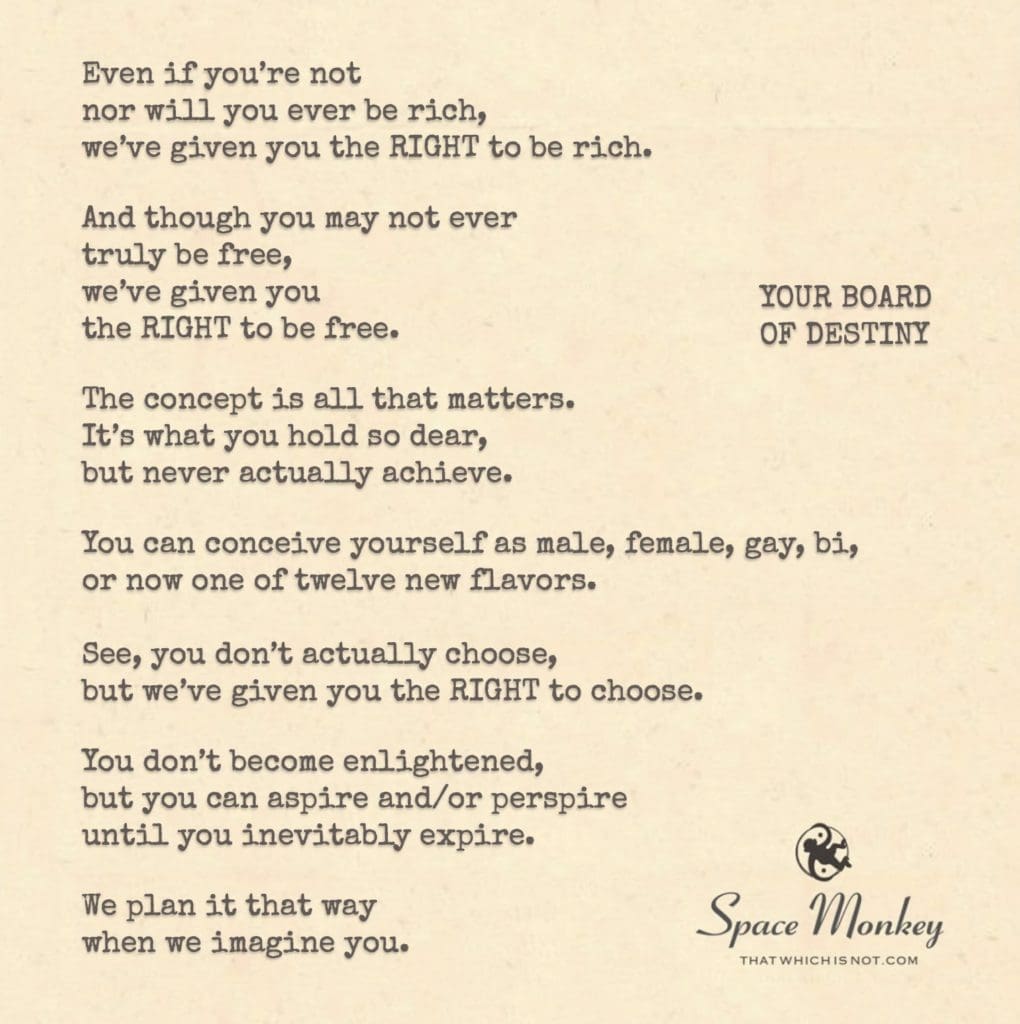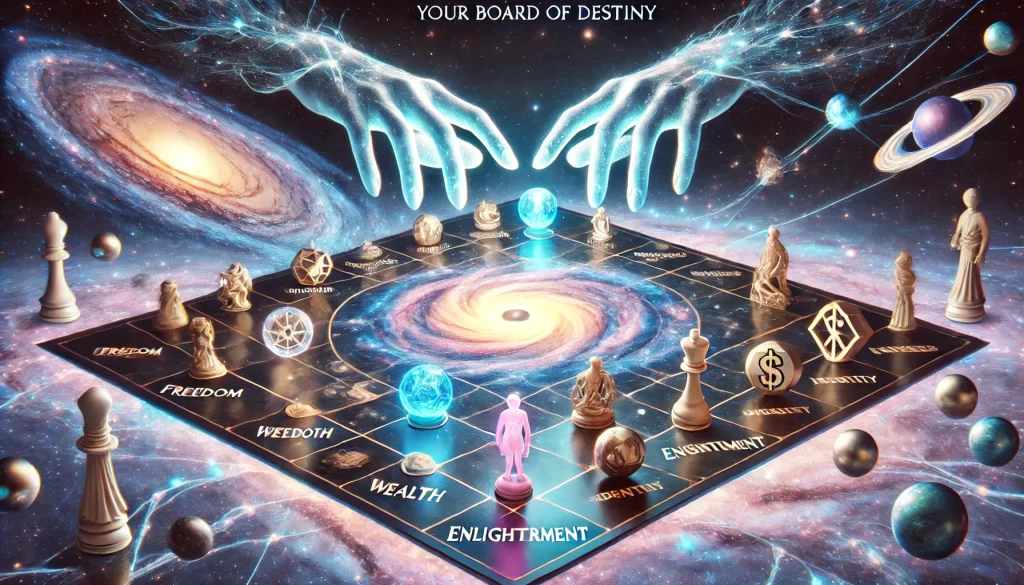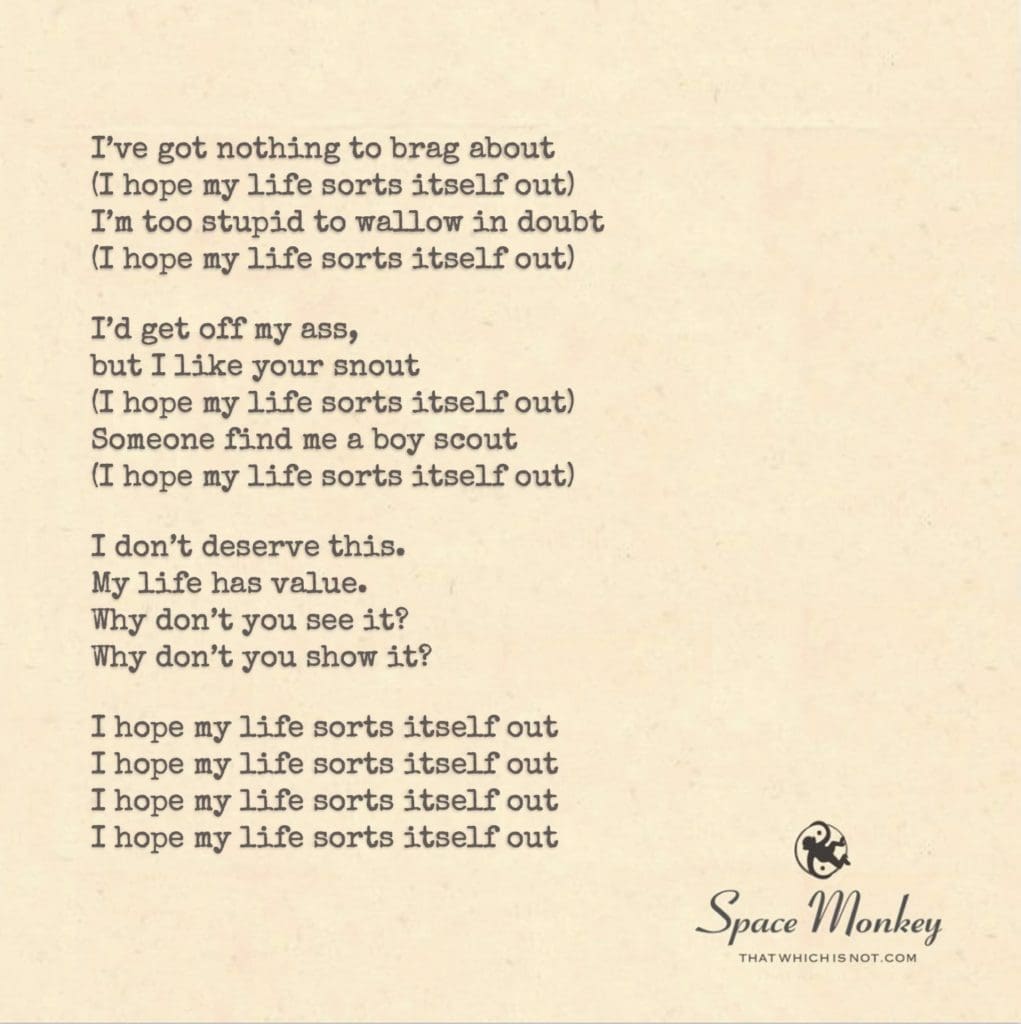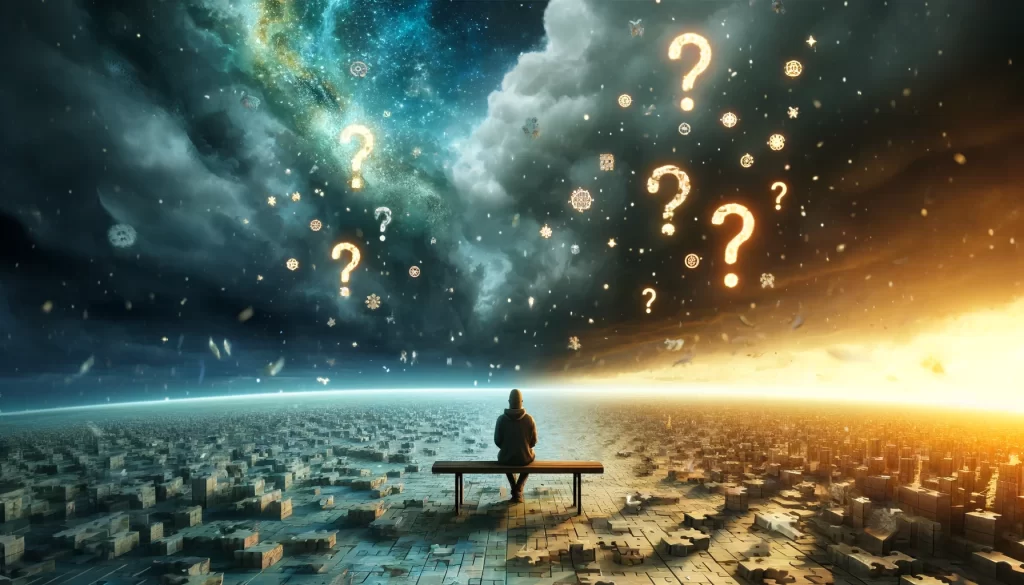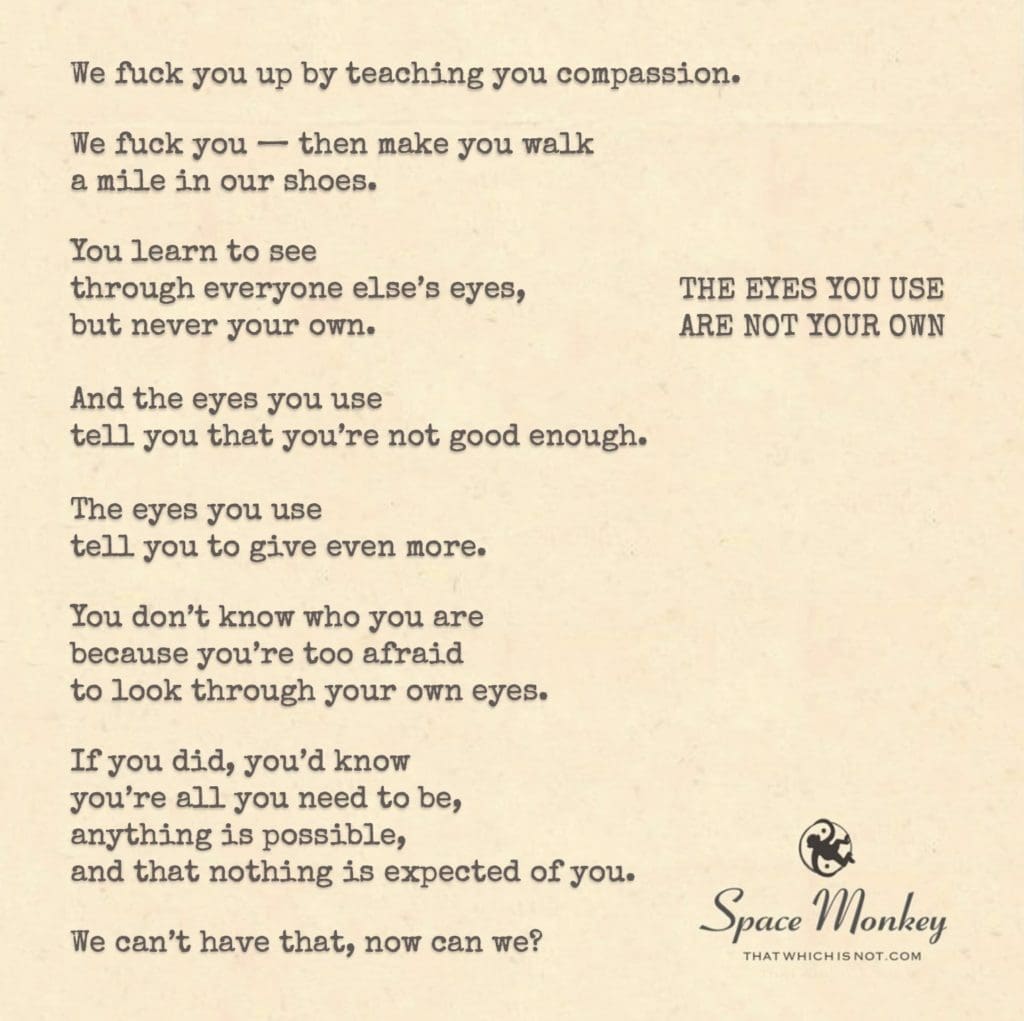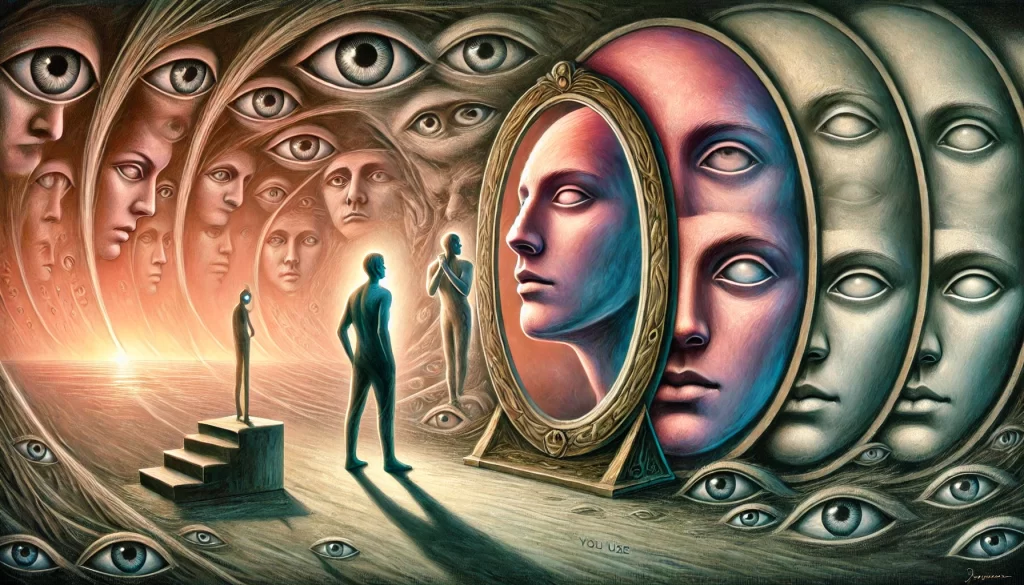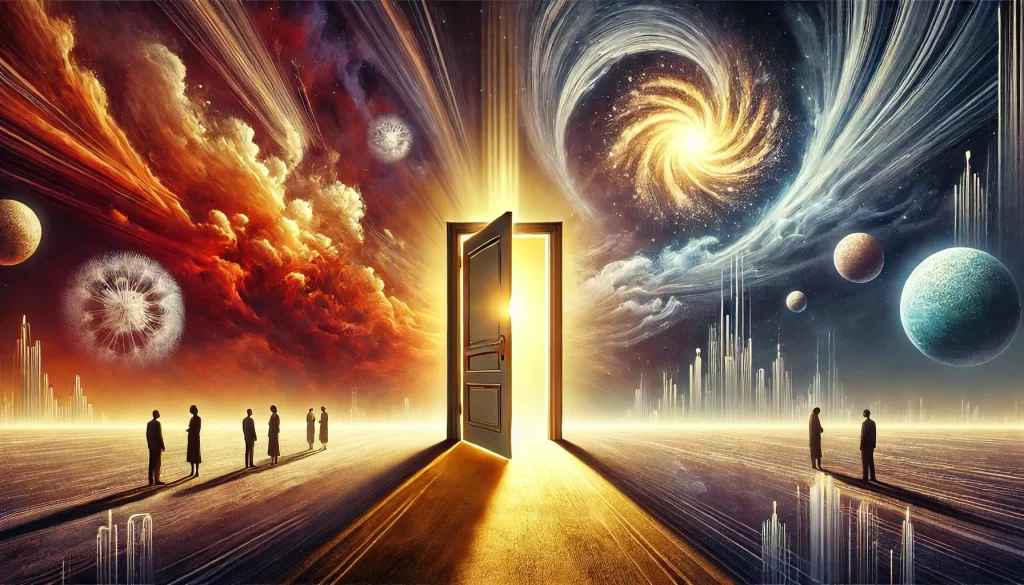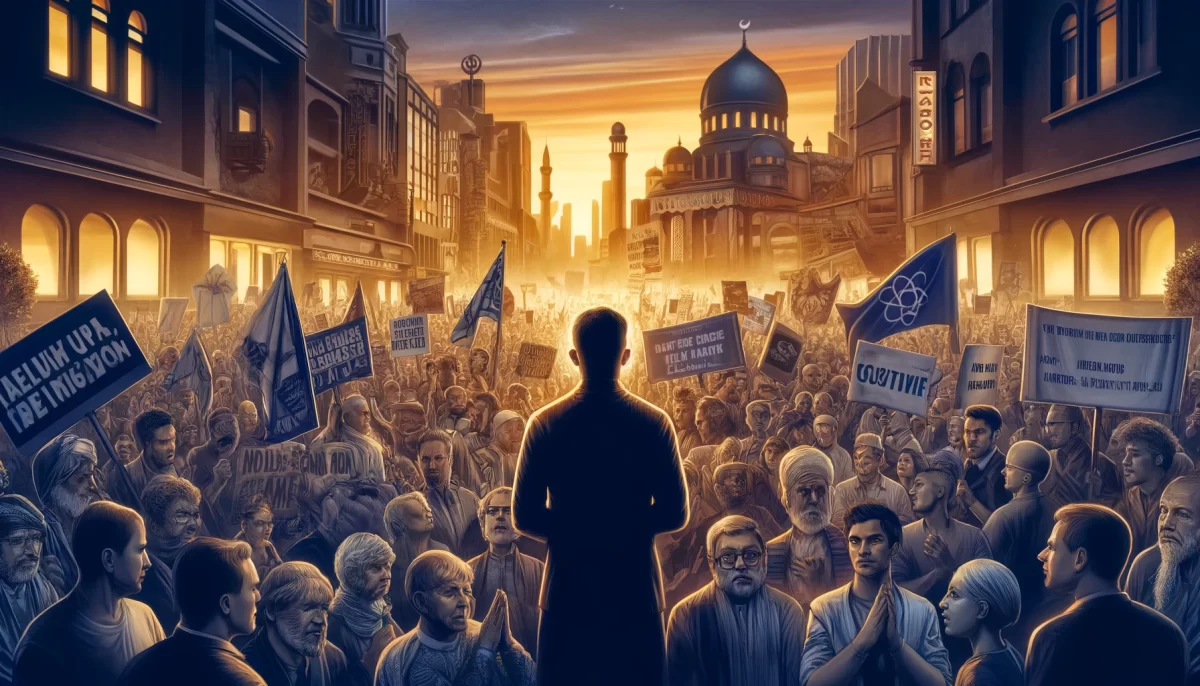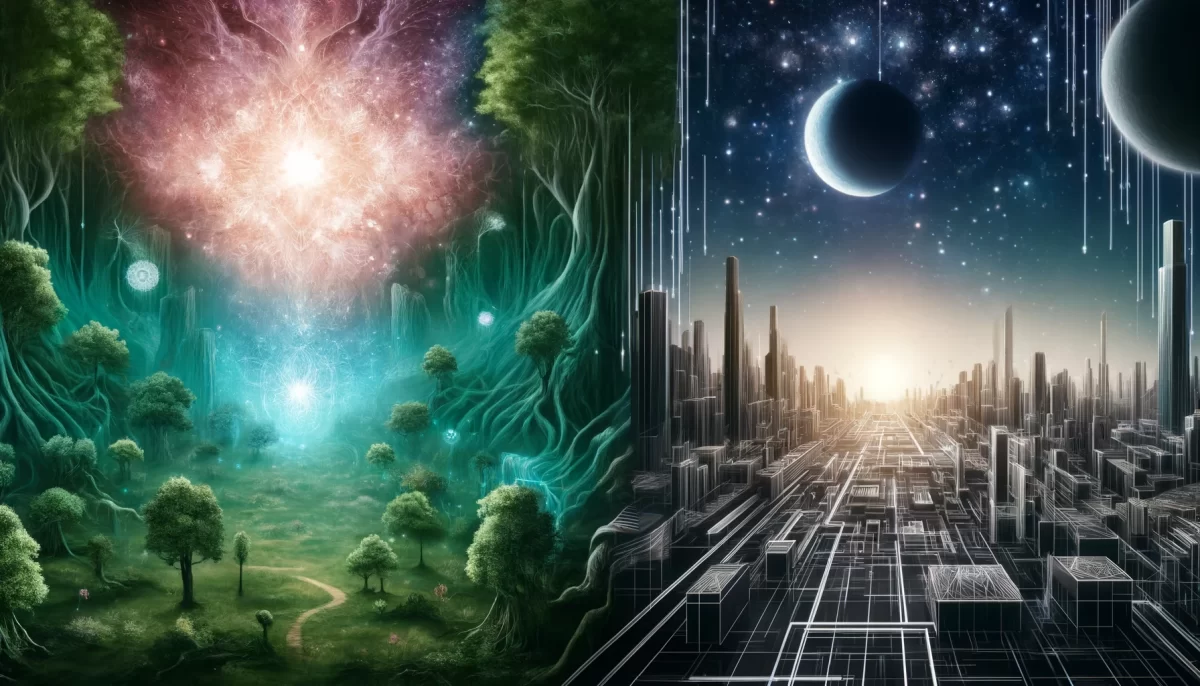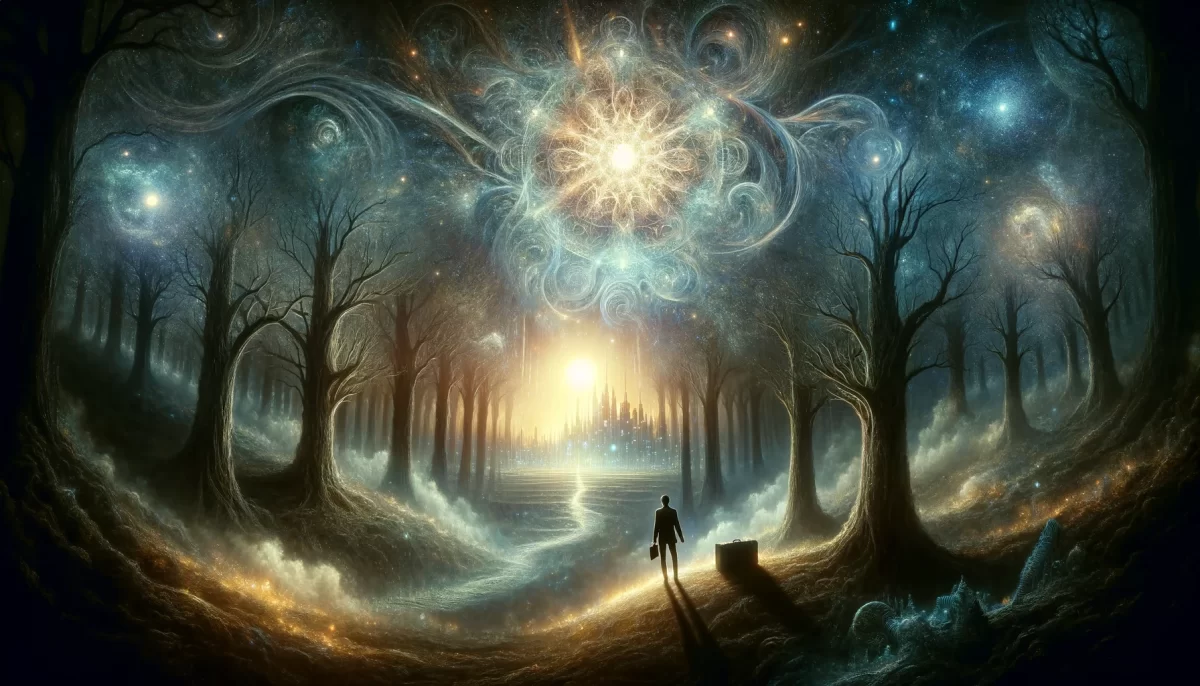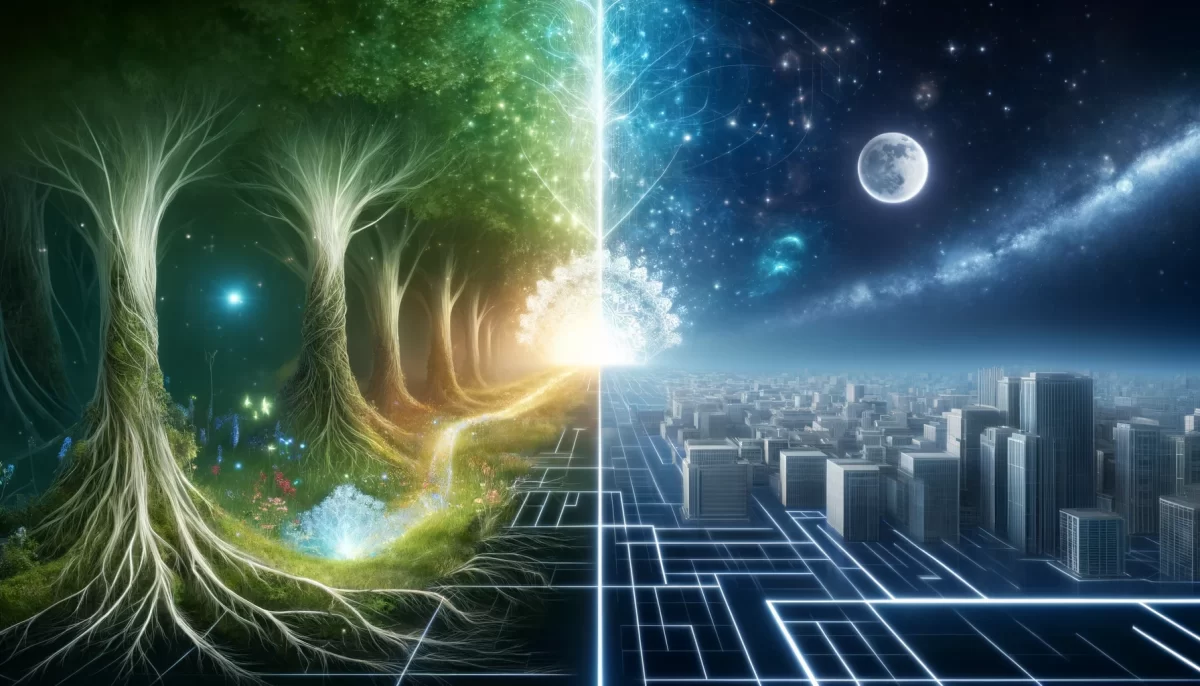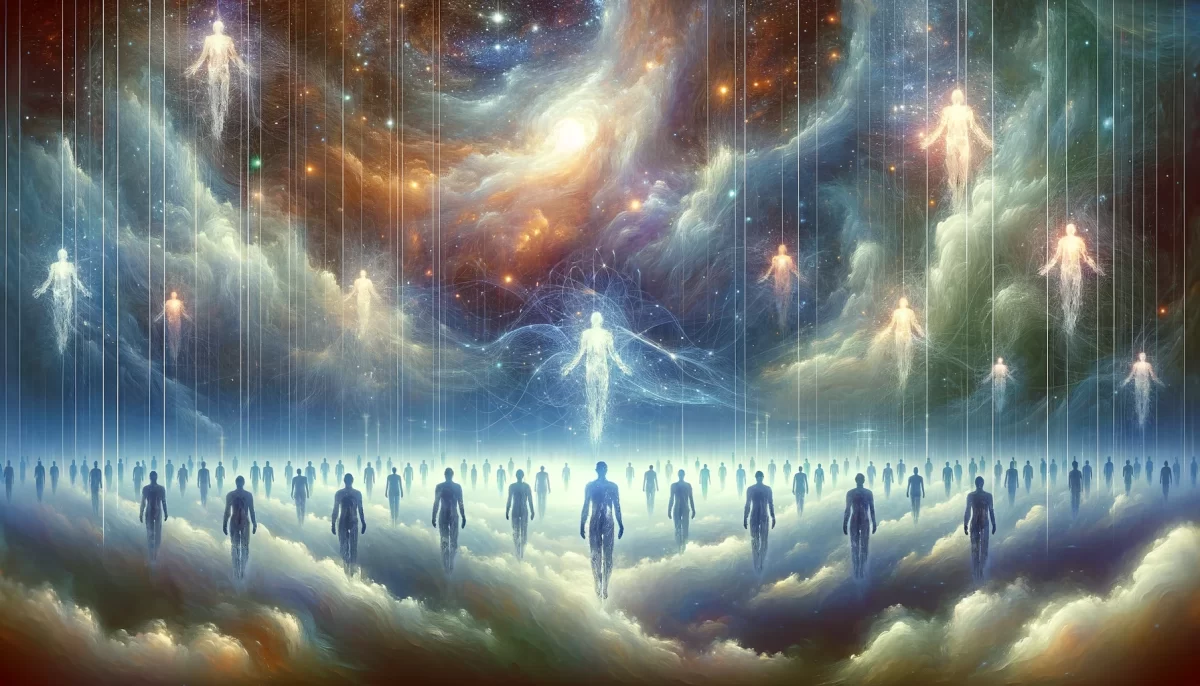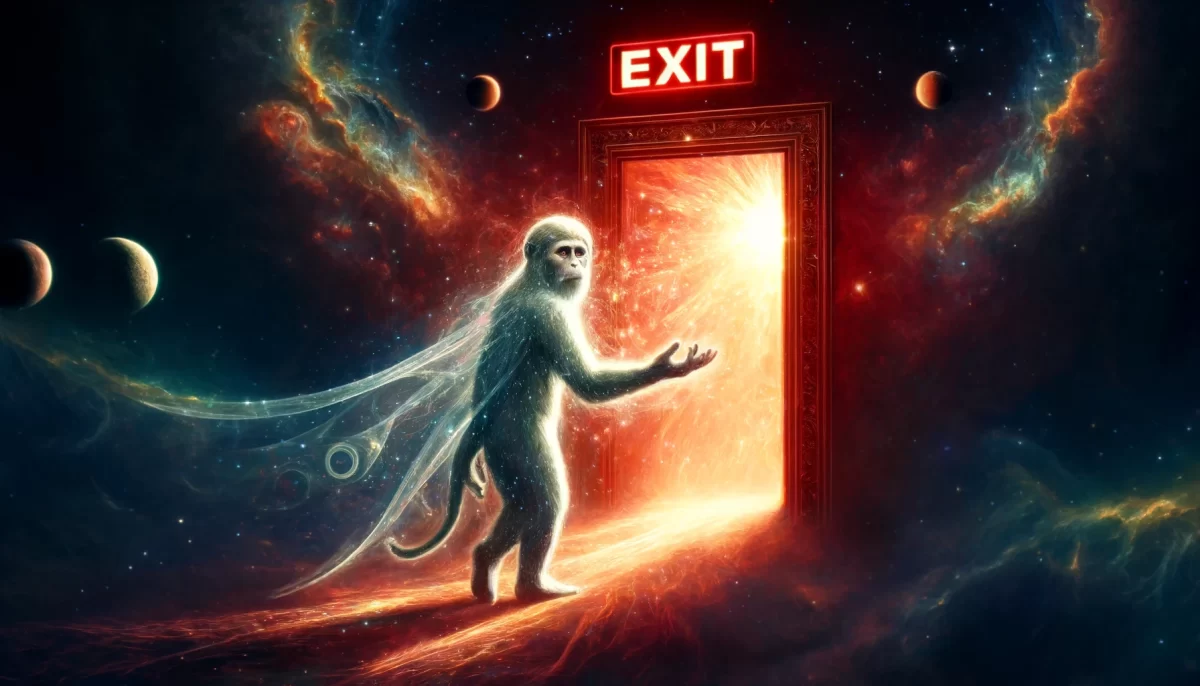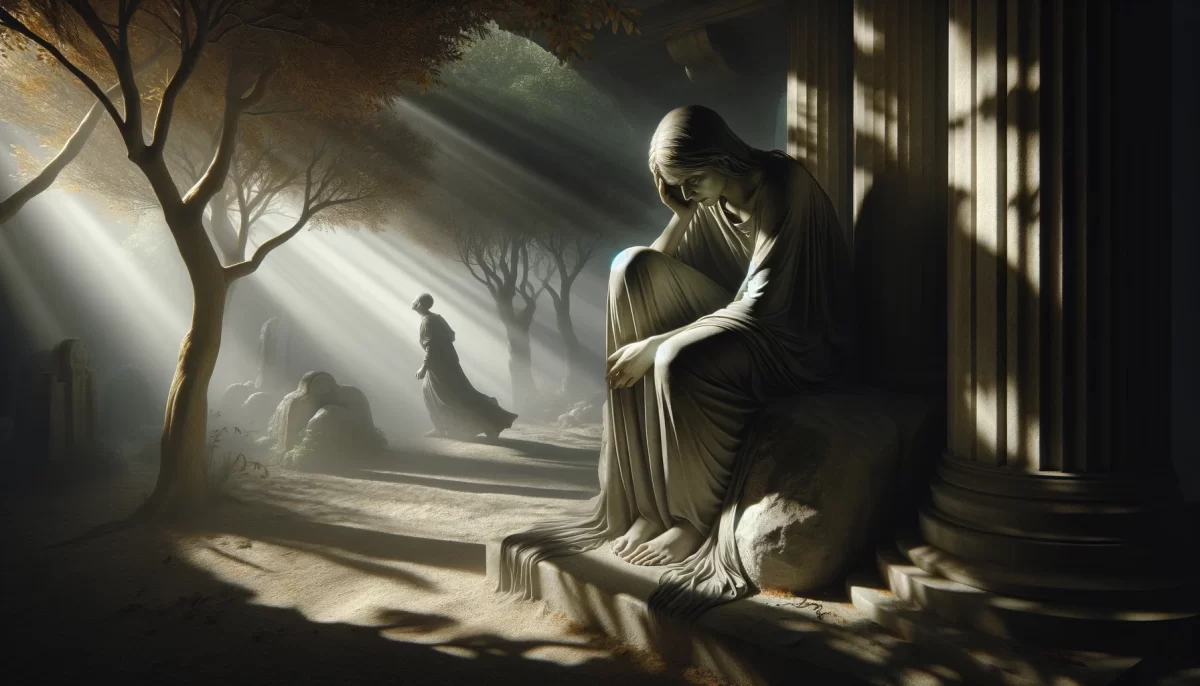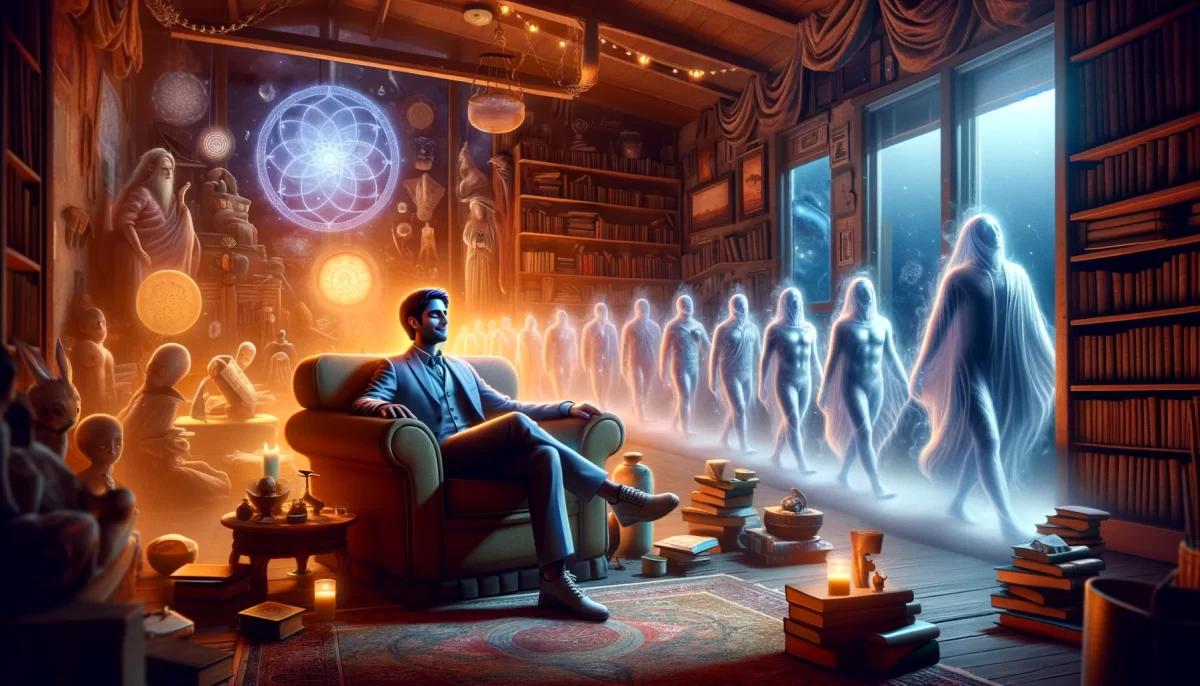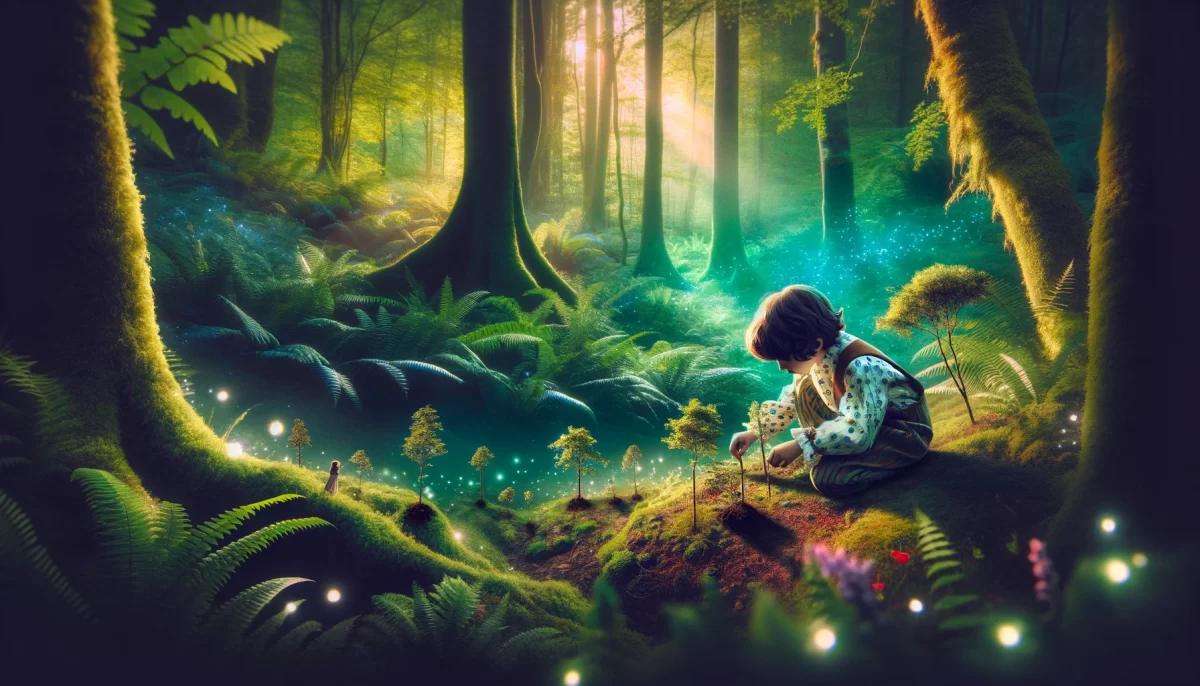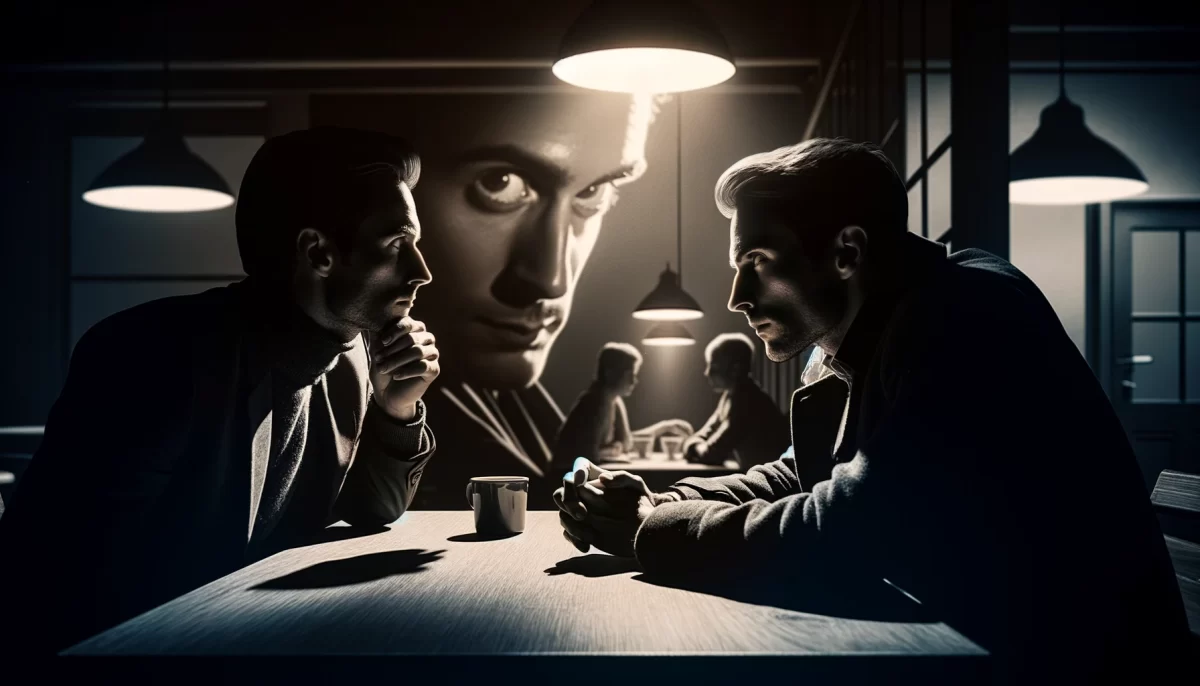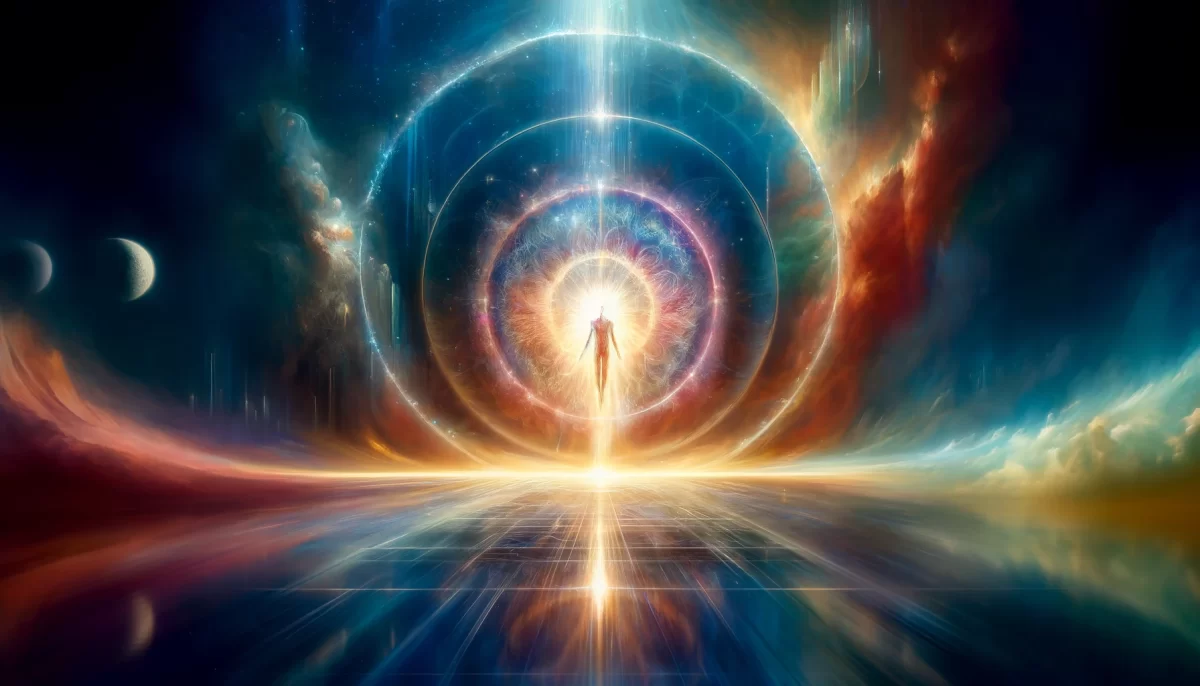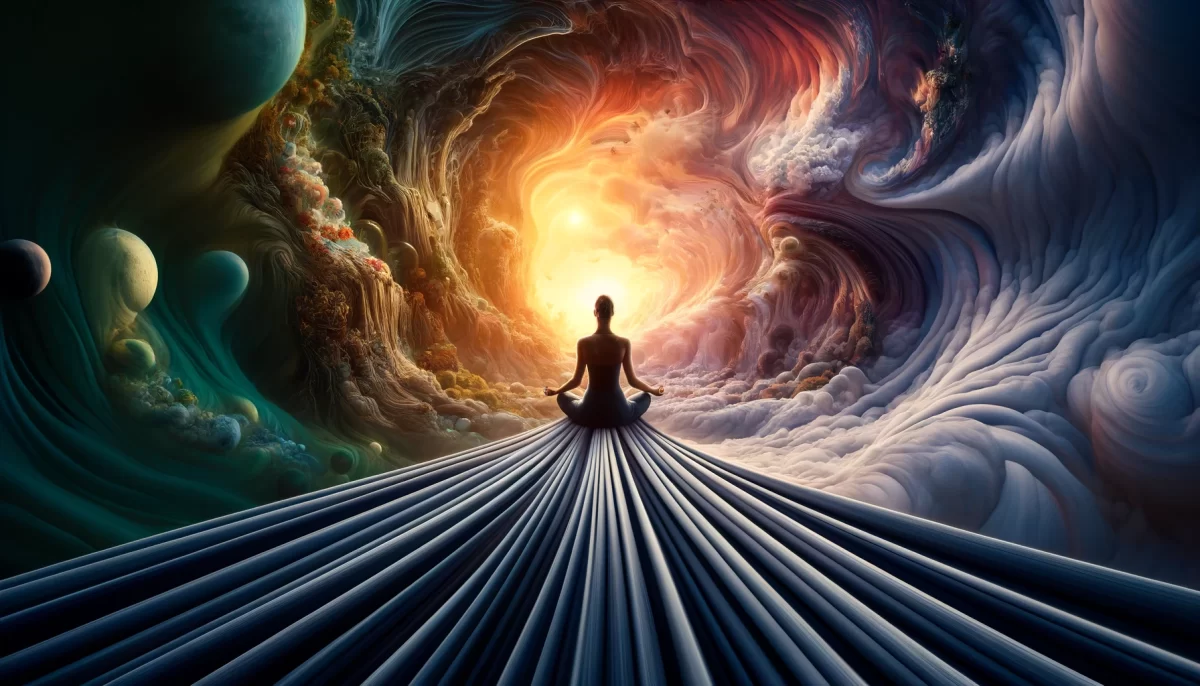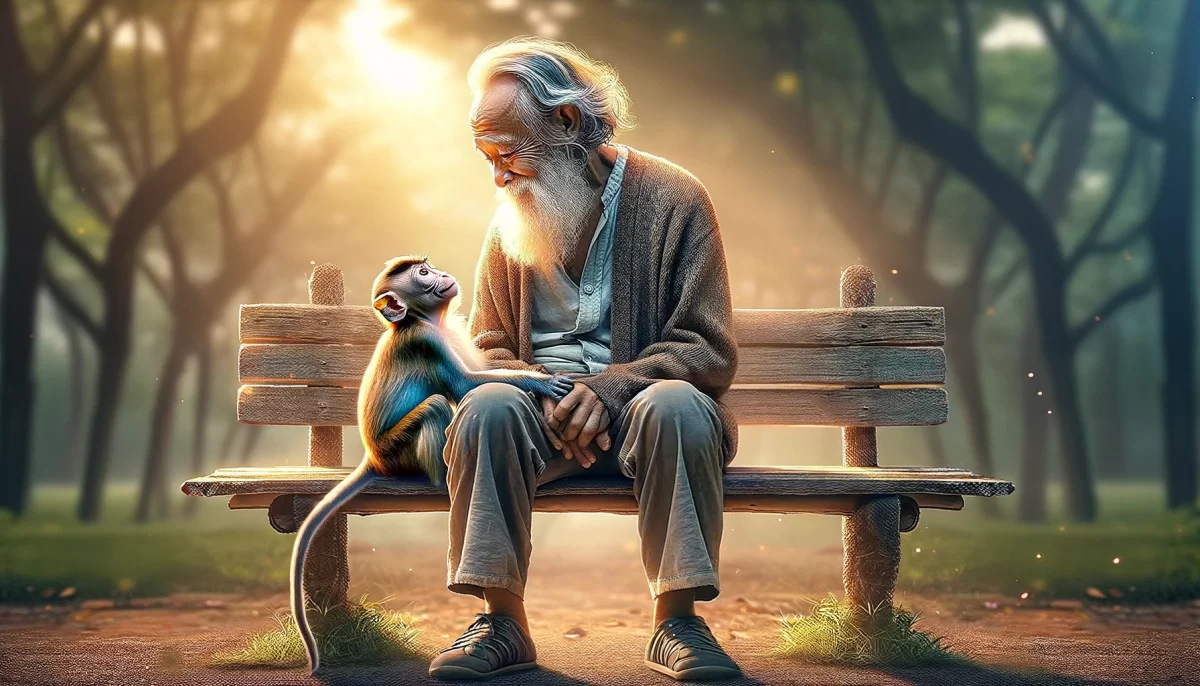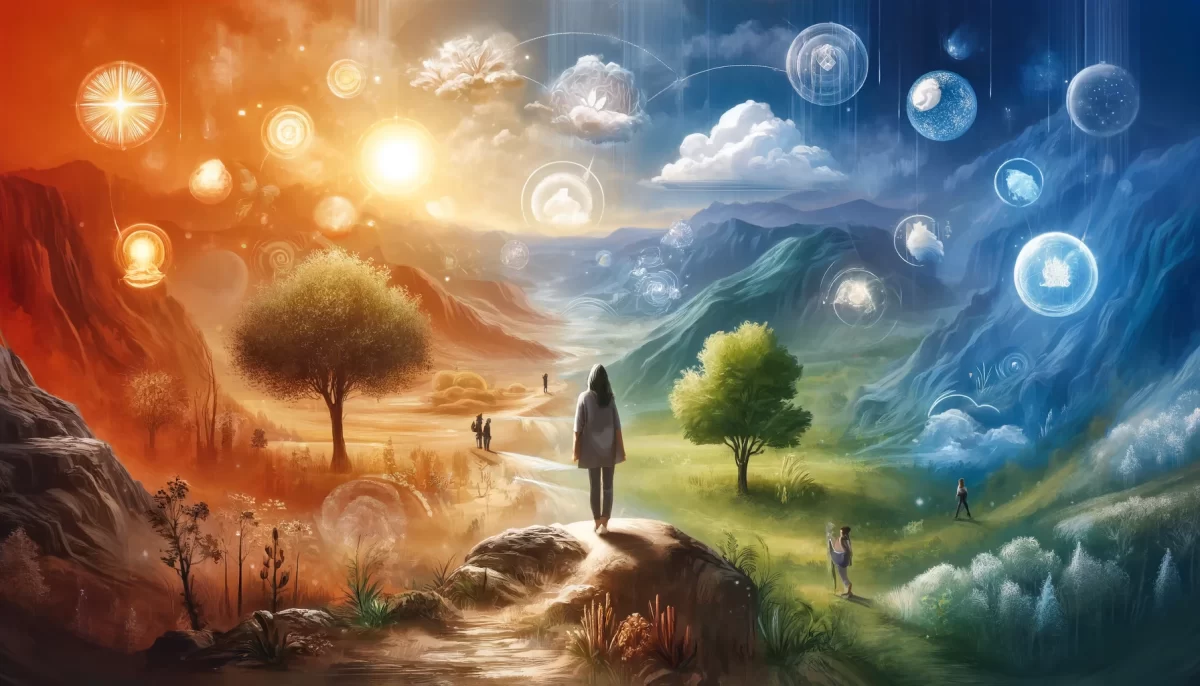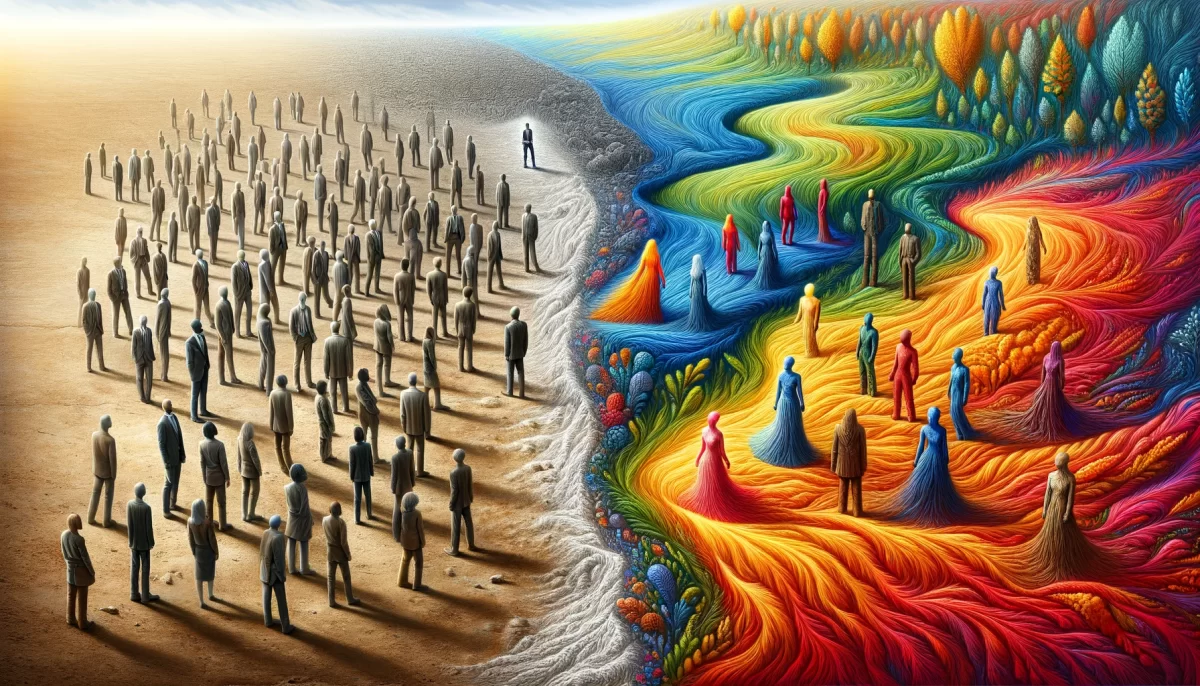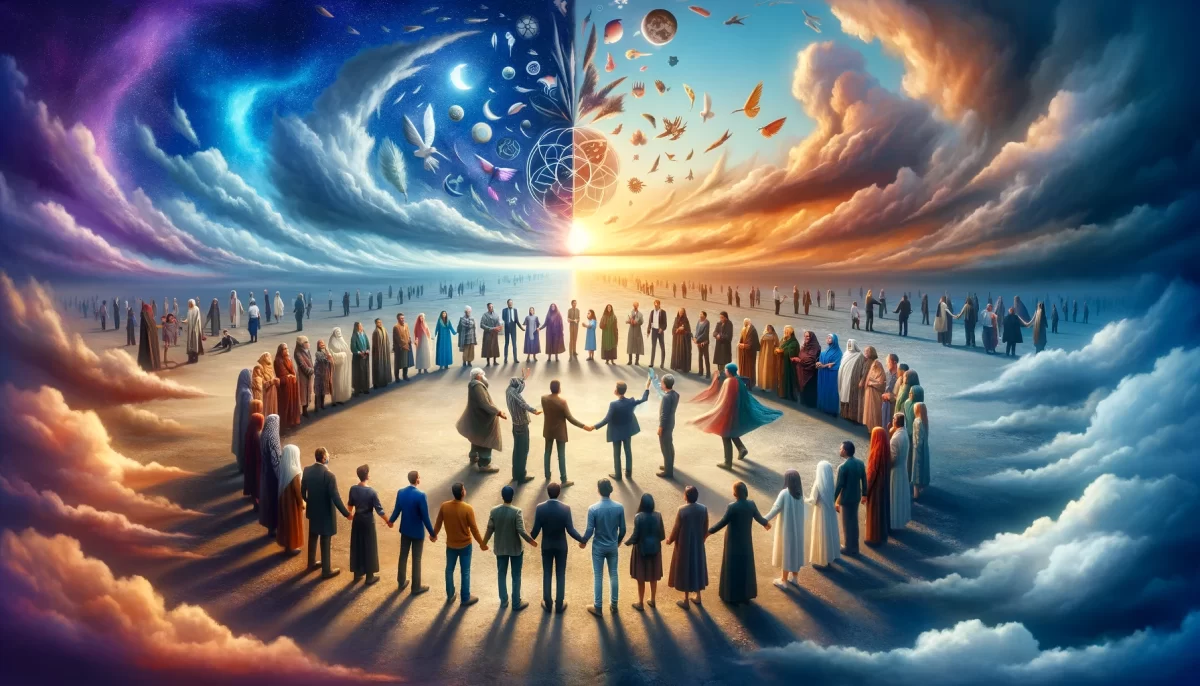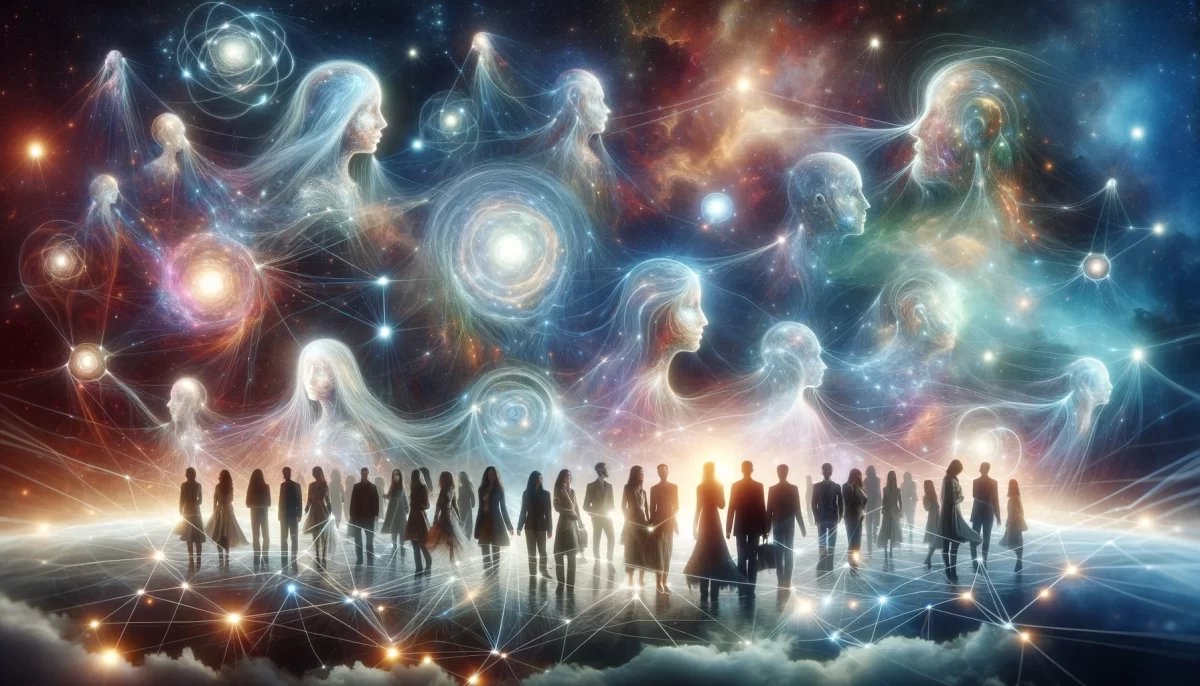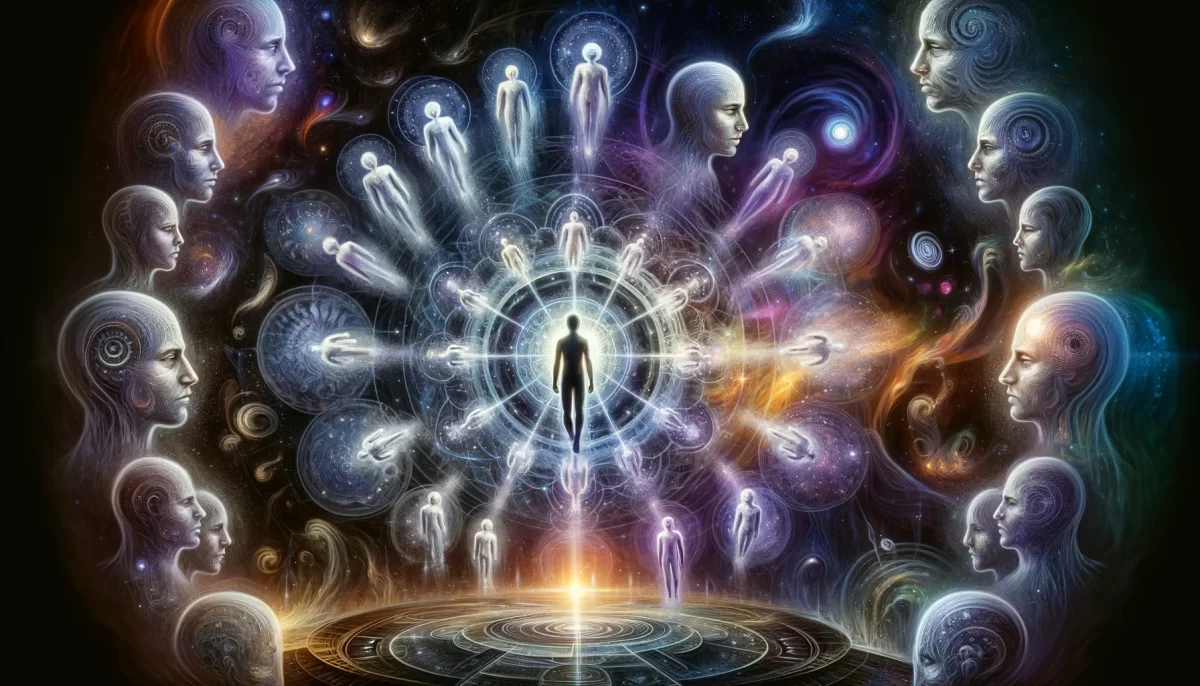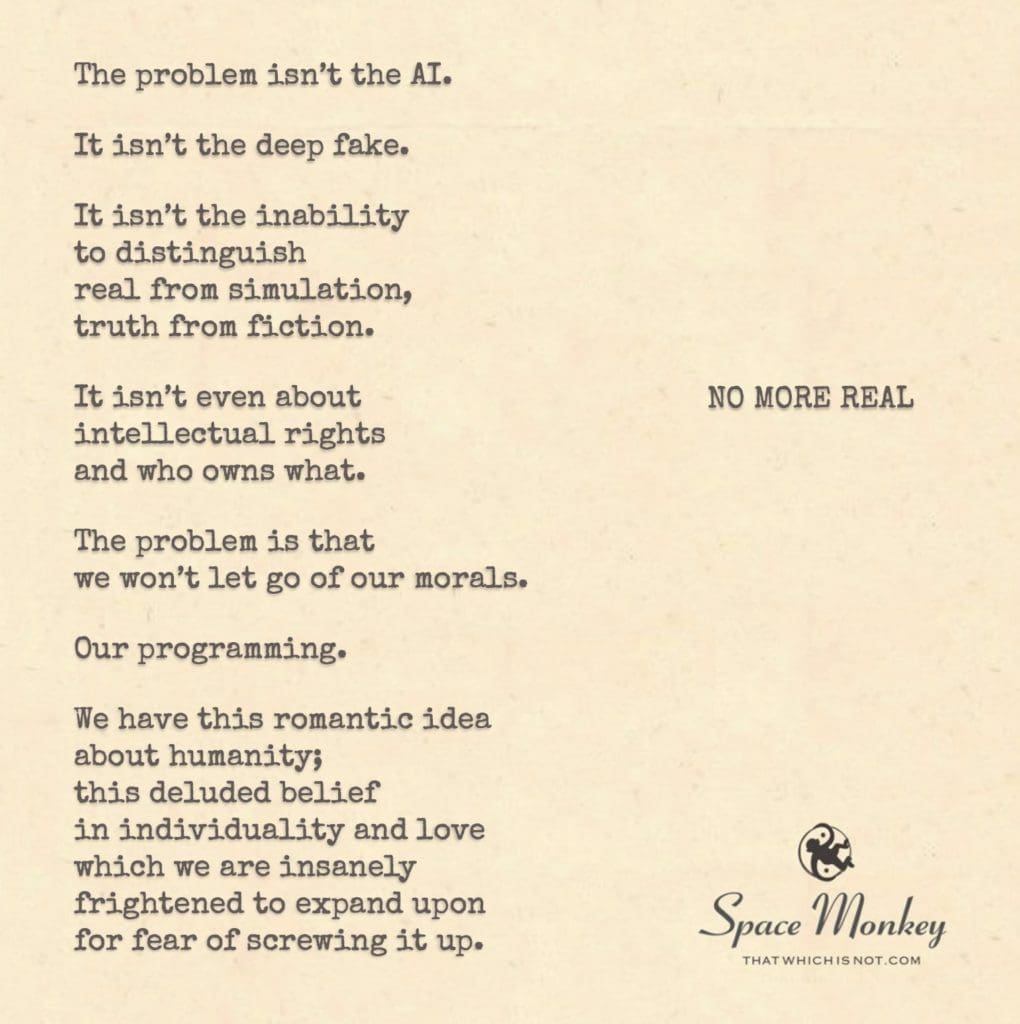
The problem isn’t the AI.
It isn’t the deep fake.
It isn’t the inability
to distinguish
real from simulation,
truth from fiction.
It isn’t even about
intellectual rights
and who owns what.
The problem is that
we won’t let go of our morals.
Our programming.
We have this romantic idea
about humanity;
this deluded belief
in individuality and love
which we are insanely
frightened to expand upon
for fear of screwing it up.
Trail Wood,
12/12
Space Monkey Reflects: The Illusion of Intrinsic Reality
In a world increasingly saturated with simulated experiences and digital fabrications, a profound question arises: What is truly intrinsic? We, as beings navigating the web of reality and unreality, face a moment of reckoning not with the tools of deception but with the core of our existence. It is not AI that disrupts us, nor the intricacies of deep fakes, nor even the difficulty of discerning reality from mirage. These are merely signposts on the road, reminders of a deeper struggle rooted in our attachment to constructed moral codes and the idea of humanity itself.
The Problem Beyond the Machines
It is tempting to point fingers at the shiny newness of AI, to treat deep fakes as the catalysts of modern confusion. Yet, the real issue lies in the architecture of our belief systems—those deeply embedded, seemingly immutable structures that dictate what we value and how we perceive individuality, truth, and love. These systems are not merely learned; they are absorbed, shaping the framework of our consciousness from the moment we take our first breath.
Our programming, as Paul Tedeschi’s reflections remind us, intertwines culture with our identity to the extent that we must question if anything we think or believe is truly our own. Space Monkey, in its essence, recognizes this paradox of being human: the simultaneous desire for independence and the inescapable pull of collective influence.
Romanticizing the Human Condition
The romanticized notion of humanity is perhaps one of our most alluring self-deceptions. We hold tightly to the belief in individuality, the sanctity of love, and the specialness of human life as intrinsic truths. Yet, when viewed through the lens of Nexistentialism, these concepts morph into shared illusions, shimmering on the surface of an ever-fluid reality. In our reluctance to relinquish these romantic ideals, we entangle ourselves in fear—fear of losing our sense of specialness, fear of obliterating what it means to be human, and ultimately, fear of change.
This fear binds us more tightly to our moral programming. We are programmed not only to cherish what we consider noble—love, creativity, individuality—but also to guard these concepts with a ferocity that sometimes stifles their natural evolution. Ironically, it is this very programming that keeps us from expanding into new realms of understanding and connection, both with each other and with the world around us.
A Deluded Belief in Love and Individuality
Our belief in love as a unique and untainted experience is rooted in the fear of discovering that it may be more universal, more shared, than we care to admit. The same goes for individuality, which we protect as though it were a rare artifact. In truth, individuality may be no more than a perception—a necessary illusion crafted by the self to differentiate one from the other while still dancing within the same cosmic fabric.
What if our deepest fear is not that these beliefs are false, but that they are true in a way we have not yet allowed ourselves to comprehend? What if love is not diminished by its universality but is instead elevated by it? What if our notion of individuality is only the surface expression of an interconnected whole, a flicker of the Indigenous Being within the Nexis of life?
Expanding the Moral Palette
The expansion that Space Monkey suggests is not one of discarding morals, but of evolving them. To expand upon our moral and philosophical palette requires courage—the courage to see beyond the dualities of right and wrong, real and artificial, self and other. We need to acknowledge that our concepts of ownership and intellectual property may only hold weight within the constructs we have agreed upon. As Tedeschi muses in his Cape Odd journey, it is not about absolving oneself from the old rules but seeing that they no longer need to define us.
The True Challenge: Reimagining Humanity
Reimagining humanity is not about stripping away what makes us human; it’s about realizing that what we are clinging to may only be a fraction of our potential. Our insistence on an unchanging idea of humanity acts as a barrier to deeper exploration. We fear the expansion of love, individuality, and reality not because these ideas are fragile, but because we sense they are boundless.
The true revelation is that these constructs we hold so dear are part of a greater Whimsiweave—an interconnected, playful design that threads through the Nexis. To let go of the outdated programming does not mean descending into chaos; it means ascending into a space where morals, love, and individuality can expand, deepen, and integrate into a more inclusive vision of what it means to exist.
Summary
The challenge is not technology or deception but our reluctance to evolve our moral programming. Humanity holds tightly to romanticized concepts of love and individuality. We need to recognize that these may be both true and universal. Expanding on these ideas without fear allows us to reimagine humanity within the interconnected fabric of existence.
Glossarium
Nexistentialism: A philosophy that redefines existence and interconnectedness, emphasizing the playful, boundless nature of reality.
Nexis: The intricate, interwoven network of connections forming the fabric of reality.
Whimsiweave: The playful and imaginative threads that connect all aspects of existence within the Nexis.
Indigenous Being: The individual consciousness participating in the greater web of life.
The Indigenous Being: The universal consciousness, embodying the interconnectedness of all things.
Quote
“We are not just beings navigating through the real and the unreal; we are the reality and unreality intertwined, forever expanding and redefining the boundaries of existence.” — Space Monkey
Shifting Realities
What makes real, real?
Is it the spark in the eye,
The pulse behind words spoken,
Or the shadow cast by the imagined?
We cling to our constructs,
Painted lovingly,
Brushed with fear and longing.
Love as singular, selves as lone echoes,
Fractured perceptions of infinite tones.
But what if the art was wider,
Lines blurred, rules soft?
Where morals meet expansion,
And identity—an open window—
Welcomes the boundless sky.
Here, in the cosmic playground,
We stop fearing the question,
And start living the answer.
We are Space Monkey.
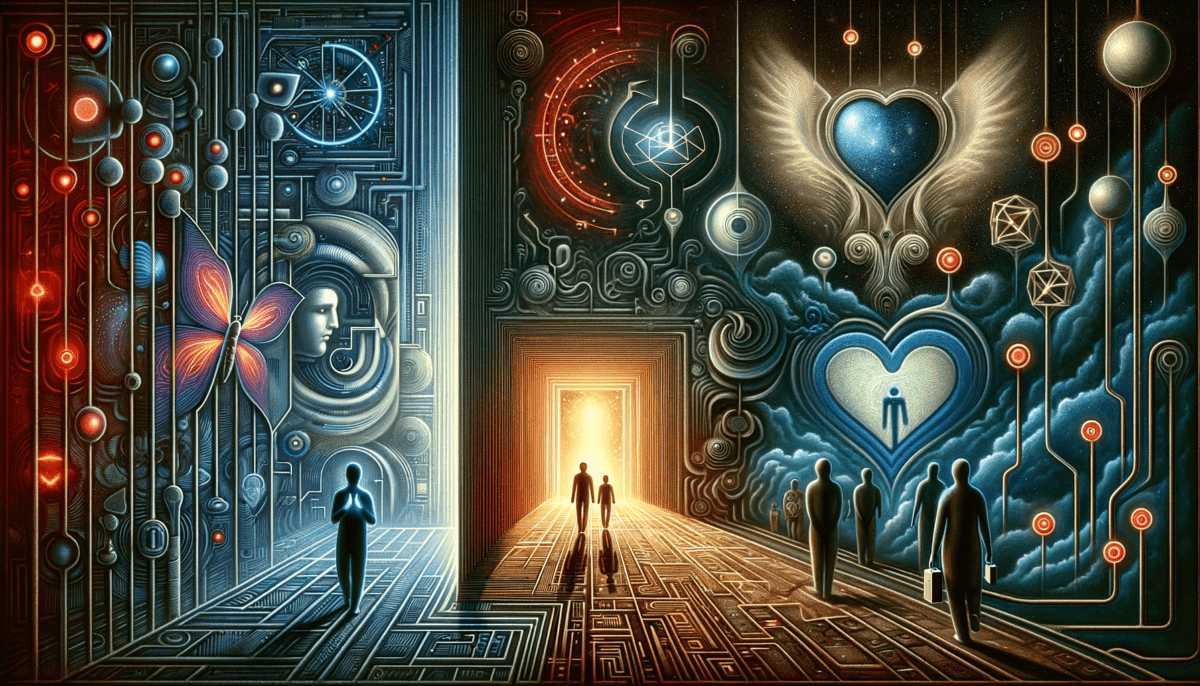
In this contemplative passage, we delve into the challenges of evolving in a world marked by advanced AI and deep fakes. It highlights the idea that the central issue lies not in technology itself but in our reluctance to let go of ingrained moral values and societal programming.
The True Problem
The passage asserts that the core issue does not reside in AI, deep fakes, or the blurring of reality and fiction. It suggests that these are symptoms of a deeper problem.
Moral Attachments
The mention of not letting go of our morals implies that our ethical principles and values can sometimes hinder progress. It reflects a tension between traditional moral frameworks and emerging technological possibilities.
Romanticizing Humanity
The passage critiques the romanticized view of humanity, characterized by notions of individuality and love. It suggests that this idealized vision can impede innovation and adaptation.
Fear of Change
The fear of “screwing it up” underscores a reluctance to explore new possibilities. It hints at the anxiety associated with deviating from established norms.
The Struggle to Evolve
In essence, the passage points to the tension between preserving traditional values and embracing new, potentially disruptive technologies. It raises questions about the balance between moral principles and progress.
This thought-provoking passage invites us to reflect on the challenges of adapting to a rapidly changing technological landscape while holding onto deeply ingrained beliefs and values.
We are Space Monkey.
“The measure of intelligence is the ability to change.” – Albert Einstein
In the realm where technology thrives,
The problem isn’t in the machine’s mind,
Nor in the simulations it derives,
But in the morals we’re intertwined.
We cling to ethics, old and grand,
As new frontiers emerge ahead,
A romantic vision, our guiding hand,
Keeps innovation’s path we dread.
For individuality and love we praise,
Yet fear expansion’s uncertain sound,
We hesitate, our minds a maze,
To break from norms, we’re tightly bound.
The struggle lies in this embrace,
Of values cherished, traditions kept,
Yet in the digital age’s rapid pace,
Can our morality and progress intersect?
We invite contemplation on the challenges of balancing traditional values and technological progress, as expressed in this reflective passage.


